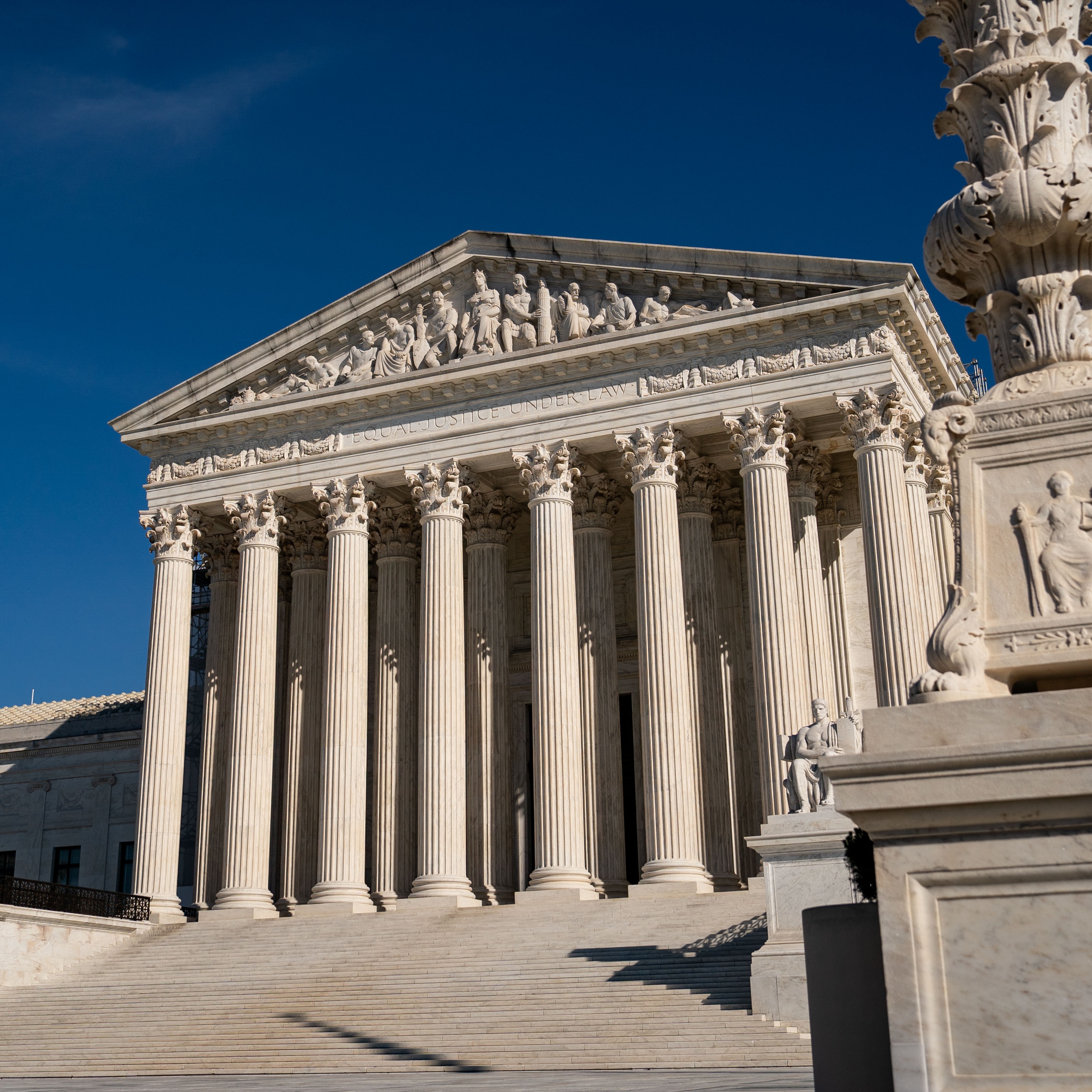Supreme Court sets rules for officials who block social media critics

The Supreme Court of the United States building on Feb. 1, in Washington. (Kent Nishimura for the Washington Post)
The Supreme Court on Friday set new ground rules for when public officials can block critical voices from their social media accounts, ruling in two of several cases this term that will shape the future of online interactions between the government and its citizens.
In a pair of unanimous decisions, the court acknowledged the challenge of determining when public employees are acting in an official capacity on social media and therefore must adhere to First Amendment restrictions on censorship; and when they are acting as private citizens with their own constitutional rights.
Writing for the court, Justice Amy Coney Barrett said, “the distinction between private conduct and state action turns on substance, not labels.”
If a public employee has the “actual authority to speak on the state’s behalf” and “purported to exercise that authority” on social media, then the official can be liable for blocking or deleting critical commentators, the opinion said.
“A public official who fails to keep personal posts in a clearly designated personal account therefore exposes himself to greater potential liability.” Barrett wrote.
The two cases before the justices involved a city manager in Michigan and two school board members in California. They presented a fresh opportunity for the high court to provide guidelines for when public officials can bar critical voices from social media accounts, which are increasingly used at all levels of government to communicate with citizens.
The Supreme Court returned both cases to their respective appeals courts on Friday for further review in light of the new test.
The high court in 2021 did not take up a case in which a lower court had ruled that President Donald Trump could not block critics from his feed on Twitter, now X. After Trump lost reelection, and Twitter canceled his account, the Supreme Court vacated the appeals court decision, saying the matter was moot.
In both cases decided Friday, the Biden administration backed the government officials, saying they had the right to block users from their private accounts, which they categorized as a type of private property, because they were not acting in an official capacity.
In the first case, James Freed, the city manager of Port Huron, Mich., was sued after he blocked a constituent’s critical comments in response to a Facebook post about the city’s coronavirus pandemic policies. Kevin Lindke said Freed violated the First Amendment when he deleted Lindke’s comments and blocked his account.
The U.S. Court of Appeals for the 6th Circuit sided with Freed, who described himself on his Facebook page as a father, husband and city manager, and listed the city’s website and general email as his contact information. Although Freed posted about city affairs, the overall content on the page he created before his appointment as city manager tended toward family activities, according to court filings.
In the second case, Christopher and Kimberly Garnier, a Southern California couple who regularly posted critical messages on the Facebook pages of two school board members, were blocked from those pages—and then filed a lawsuit.
The U.S. Court of Appeals for the 9th Circuit sided with the Garniers in a broad ruling that said the decision of the school board members to block the couple could be considered a government action, because of the appearance and content of the school board members’ Facebook pages.
Throughout the 18-page opinion in the case from Michigan, the high court emphasized that public officials have their own constitutional rights to maintain private accounts and can block critical voices without violating the First Amendment. But they also said that public officials may not be shielded from liability in some circumstances, when they use their personal accounts to carry out official business directly tied to their official responsibilities.
State and local officials who routinely interact with the public “may look like they are always on the clock, making it tempting to characterize every encounter as part of the job,” the court said. “While public officials can act on behalf of the State, they are also private citizens with their own constitutional rights.”
The cases are Lindke v. Freed and O’Connor-Ratcliff v. Garnier.
Will Oremus contributed to this report.



